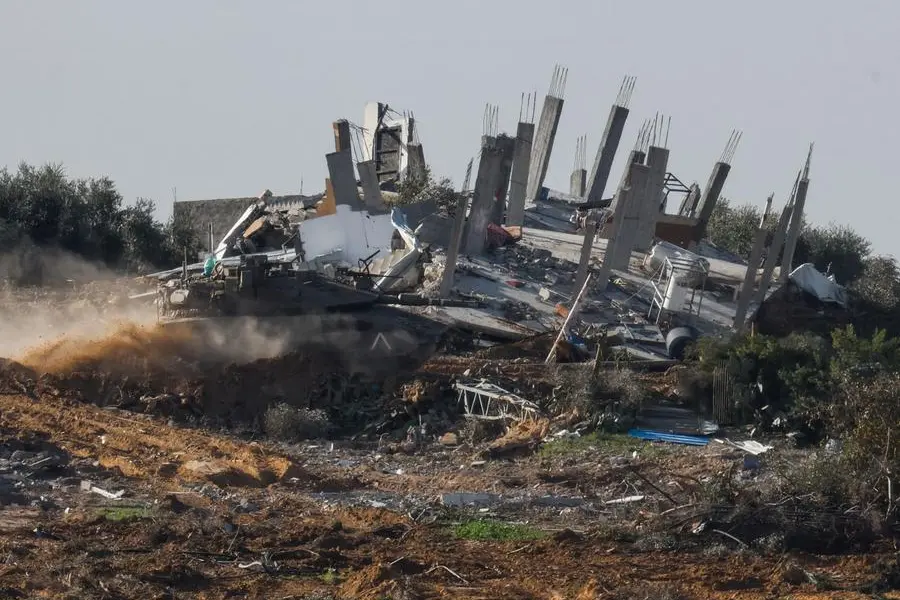PHOTO
When Palestinian tailor Majed Abu Hajeb mends the shirts or jackets of people who fled their Gaza homes with barely a change of clothes, he has to deploy pedal power because there is no electricity to run his old sewing machine.
Sitting by the roadside in a street market in Rafah, Abu Hajeb busily measures, cuts and sews as his son Magdy stands opposite, spinning the pedals of a dismantled child's bicycle with his hands to power the machine.
More than three months of Israel's war on Hamas in Gaza has changed every element of life in the tiny, crowded Palestinian enclave, forcing nearly all its 2.3 million people from their homes and smashing homes and shops in relentless bombardments.
In Rafah, tucked along the strip's border with Egypt and the safest place in Gaza despite continued Israeli airstrikes there, streets, empty lots, beaches and parks have been filled with the tents of displaced people.
Their clothes, many now torn or tatty, are strung on lines between the tents and shanties, with little chance of replacement given the scale of destruction and the soaring prices that scarcity has brought.
Israel cut off electricity supplies into Gaza, along with fuel needed to run private generators, on the first day of the war. Since then electricity has been one of Gaza's biggest luxuries, available only from solar panels or the dribble of diesel that does get through.
"Necessity is the mother of invention," said Abu Hajeb, explaining that there was lots of demand for his work as a tailor in the current crisis.
"We are using this bicycle instead of the motor and we are using the boy instead of electricity," he added, sewing a zip for Nidal Qadan, a customer standing nearby.
Qadan described the war, triggered on Oct. 7 when Hamas fighters rampaged into Israel killing more than 1,200 people and grabbing 240 hostages, as "a bad dream", and praised Abu Hajeb's inventive approach to hardship.
Israel's bombardment and ground invasion of Gaza have killed more than 24,100 people according to health authorities in the Hamas-run enclave, with no sign it will ease soon.
"My younger brother is supposed to be riding this bicycle and playing in the street like other children. But today we have to use it as an alternative to a motor so we can make a living," said Abu Hajeb's son, Magdy.
(Reporting by Fadi Shana, writing by Angus McDowall, editing by Philippa Fletcher)





















